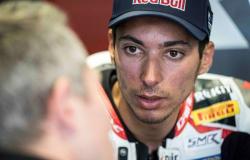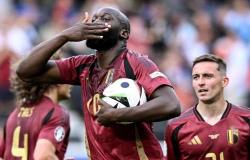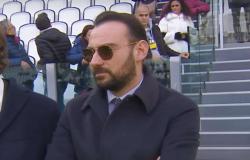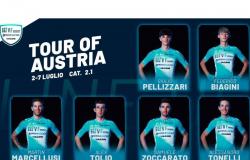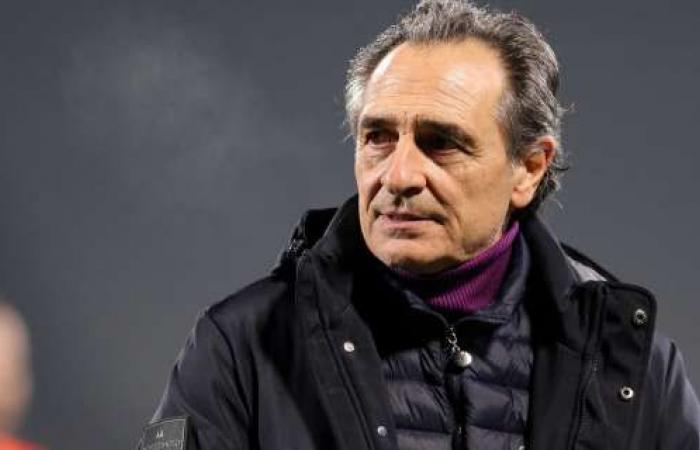
He brought his balanced – but always courageous and enterprising – football around Italy, collecting excellent results in practically all the places where he worked: from Verona to Parma, from Venice to Florence. But the pinnacle of his coaching career came on the bench of the Italian national team, which he led to a flattering second place in the 2012 European Championship (behind only the overwhelming and “unplayable” Spain of the time). Much less successful, however, was the 2014 global expedition to Brazil.
Cesare Prandelli, who officially retired from the world of football in 2023, keeps his passion for football intact. And he continues to carefully follow the events of national and international football, expressing valuable technical-tactical judgments and more.
Cesare, did the verdicts of the fight to avoid relegation reflect the real value of the teams involved or, on the contrary, did someone fall to Serie B beyond their own demerits?
“Let’s say that the fight for survival in recent years has involved teams that were, so to speak, ‘unsuspected’ on the eve of the championship. This year, I was positively surprised by Verona, which at a certain point everyone thought was done for: the widespread feeling was that the Venetians only wanted to cash in on the numerous January sales, but instead they showed off a sensational second half of the season that allowed them to deservedly hit the target. This means that you can still play football, even in the provinces, if you have valid ideas and principles to pass on to your players. Among other things, the Verona team has expressed a decidedly proactive and modern game: after all, it is often the contingent needs that push you to become even more offensive than you have been up to that point.”
In your opinion, what was lacking in Di Francesco’s Frosinone, who squandered the precious assets accumulated in the first part of the season in the second half of the season? The performances of the Ciociari, despite the relegation, have often been anything but despicable…
“Absolutely. Frosinone has always played excellent football. The problem is that when you express yourself brilliantly on the pitch but, for various reasons, you are unable to achieve the result, everything becomes much more complicated. The gialloblù arrived at the last match, the one against Udinese, in difficult conditions also from a psychological point of view.”
Focus on Ranieri’s Cagliari: the rossoblù, after a deficit in the first half of the season, improved their performances and results in the second half of the season when they adopted the formation with the attacking midfielder behind the two attackers, adopting a more offensive and proactive attitude. Was it really impossible to adopt this approach a little earlier, when it seemed clear that the hyper-wait-and-see strategy wasn’t paying off and defeats were pouring in (along with the number of goals conceded)?
“We start from the assumption that there is never proof of anything. If Ranieri didn’t adopt the most offensive form from the start it was because he probably hadn’t yet found the right balance between midfield and defence. After all, if a master like Claudio, skilled like few others at adapting to the technical characteristics of the elements available to him, acted in this way he certainly did well. It is no coincidence that Cagliari played a second round at a thousand miles per hour: they had a fantastic offensive triangle with the attacking midfielder behind the two strikers, and gave no references to their opponents. It was at that point that the Roman coach found the perfect balance between the departments. When you succeed in this aim and, at the same time, make the most of the characteristics of your players, the team performs at the top also in terms of determination and concentration. And I’m talking about a concentration that is not only preparatory to performance, but also aimed at achieving the result.
On the other hand, it also took time for the rossoblù players to metabolize the concepts conveyed by the coach and to fully understand the technical-tactical prerogatives of their teammates. It’s not a process that happens that quickly. We see it especially now, during the European Championships: the national teams, apart from a couple of exceptions, are all cumbersome in this period. They struggle to take off in terms of collective play. In short, I repeat that finding the right alchemy takes time. And Cagliari made good use of that time, through work and daily application.”
Cesare, your opinion on Davide Nicola, the new rossoblù coach who the club should announce very soon.
“Nicola has amply demonstrated that he not only has valid footballing ideas, but also a great character and a strong personality. He is very skilled at creating a united and cohesive group of players. I am convinced that his intent, on the eve of his new Cagliari adventure, is to reach safety as soon as possible and then, perhaps, have fun together with all the Sardinian fans and try to satisfy some whim. Naturally, we must never divert attention from the primary objective, which is to maintain the category: the other teams are equipped and, in turn, aim to make a small leap in quality. This is taught by the lesson of Sassuolo, who last August would never have imagined that they would find themselves embroiled in the fight to avoid relegation.
Cagliari certainly has the enormous advantage of having an entire island behind them that pushes hard and never makes the players, the coach and the club feel alone. Gigi Riva often told me this with teary eyes: Sardinia gets inside you, makes you feel part of something big and visceral. For him it was the soul, the heart. It was his land.”

